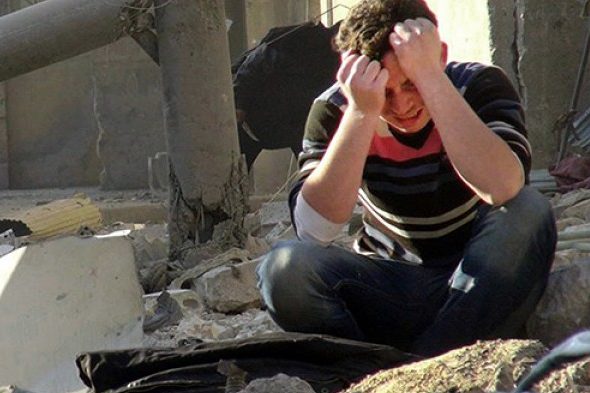
Mar 15, 2021 | News
As Syria marks 10 years of a devastating armed conflict, the UN Security Council continues to abdicate its responsibility to address the gross human rights abuses committed by the Syrian government and various other actors in the country, including the use of chemical weapons and the perpetration of other crimes against humanity, likely genocide and war crimes, the International Commission of Jurists (ICJ) said today.
Since a popular uprising began in March 2011, the regime’s unabated repression has driven Syria into a full-scale civil war. Hundreds of thousands have been killed; tens of thousands have been tortured and forcibly disappeared; over 11 million have been forcibly displaced, either internally or to host countries; and tens of thousands continue to to be arbitrarily detained.
Notwithstanding this, Russia and China have vetoed at least 15 Security Council resolutions seeking to address and deter the perpetration of crimes under international law in Syria, including through the establishment of investigations into the use chemical and other weapons, by imposing sanctions over such use, and by referring the Syria situation to the International Criminal Court (ICC).
“The SC’s failure to address the Syrian conflict has been chronic and structural, and so wrong about so much and at the expense of so many”, said Said Benarbia, MENA Programme Director at the ICJ. “The SC’s failure calls into question its very role as a guarantor of peace and security and its relevance in upholding a rule-based order.”
To end impunity and ensure victims’ right to justice and effective remedies, the SC must reform its accountability practices, including by ensuring that decisions on the investigation of crimes under international law, the referral of these crimes to the ICC, and the establishment and operationalization of other forms of accountability be based on the existence of overwhelming evidence of such crimes, rather than political expediency.
In the meantime, individual UN Member States must act to begin filling the accountability gap in Syria, including by supporting United Nations accountability mechanisms, such as the the International, Impartial and Independent Mechanism, and by seeking out, prosecuting and punishing those responsible for the atrocities committed in the country pursuant to the principle of universal jurisdiction, as the recent, first-ever guilty verdict against a former official of the Syrian regime delivered by the Higher Regional Court in Koblenz, Germany, shows.
Contact:
Asser Khattab, Research and Communications Officer, ICJ Middle East and North Africa Programme, asser.khattab@icj.org
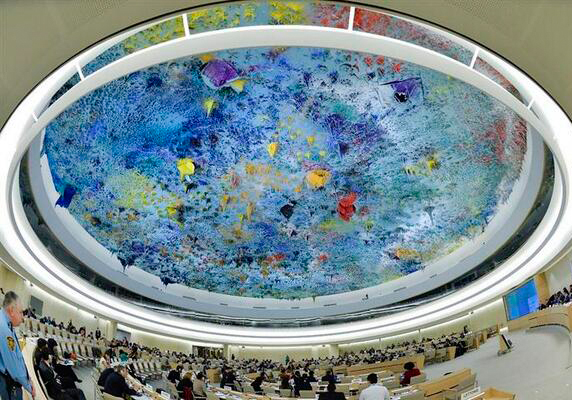
Mar 12, 2021 | Advocacy, Non-legal submissions
Today, the ICJ delivered a statement to the UN Human Rights Council calling for accountability for crimes against humanity committed in Myanmar during the Interactive Dialogue on the report by the UN Special Rapporteur on the situation of human rights in Myanmar.
The statement reads as follows:
“Madame President,
The International Commission of Jurists (ICJ) welcomes the recent report of the Special Rapporteur on the situation of human rights in Myanmar.
The widespread gross violations of human rights documented in the report – including extrajudicial killings, arbitrary arrests and detention- underscore the need for urgent measures of accountability to redress these and to deter further violations.
ICJ has documented further evidence that the unlawful crackdown against peaceful protestors have continued to worsen leading to more extrajudicial killings. More than 50 people have already been unlawfully killed and several hundreds have been severely injured.
Hundreds of others have been arbitrarily arrested and detained, with some subjected to torture and ill-treatment. As the scale of violations continues to increase in many parts of the country, these attacks have become systematic and widespread, and must be investigated as crimes against humanity.
The ICJ therefore supports the recommendations made by the Special Rapporteur, including for referral of the situation to the ICC.
The ICJ urges the Council to adopt a resolution that would strengthen and support the IIMM’s work to collect and preserve evidence for accountability; and to extend the mandate of the Special Rapporteur, including to ensure the immediate, full and unrestricted monitoring of the situations and prompt and effective implementation of their recommendations.
Thank you.”
Contact:
Massimo Frigo, ICJ UN Representative, e: massimo.frigo(a)icj.org, t: +41797499949
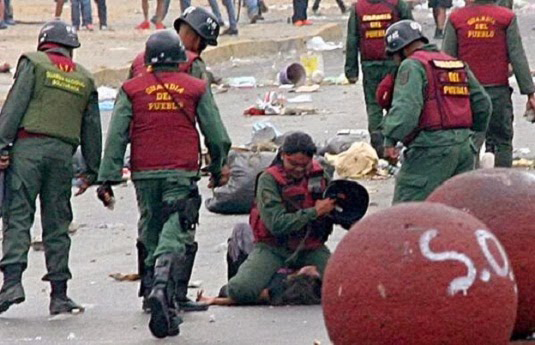
Mar 10, 2021 | Advocacy, Non-legal submissions
The ICJ delivered a statement today on the occasion of the interactive dialogue on the oral update by the Independent International Fact-Finding Mission on the situation in Venezuela calling for attention to the persistence of widespread serious human rights violations in the country.
The statements reads as follows:
“Madame President,
The International Commission of Jurists (ICJ) welcomes the Independent International Fact-Finding Mission’s oral update on the situation in Venezuela.
The ICJ calls attention to the persistence of widespread serious human rights violations, as reported by the FFM in its 2020’s report, including extrajudicial killings.
Venezuelan authorities have wholly failed to comply with the Mission’s recommendations, including the need for “prompt, effective, thorough, independent, impartial and transparent investigations into the human rights violations and crimes”.
This underscores the deficits in judicial and prosecutorial independence that has undermined fair trial rights.
The ICJ is extremely concerned about attacks on human rights defenders and civil society organizations in Venezuela by the authorities, which include the criminalization of the defence of human rights protected under international human rights law.
Civil society organizations that were targeted in 2020 include “Acción Solidaria”, “Provea”, “Alimenta la Solidaridad” and “CONVITE”, and early this year five members of “Azul Positivo” were arbitrarily detained and continue to be harassed.
The ICJ urges that the Venezuelan authorities ensure their full cooperation with the FFM and immediately cease the attacks on human rights defenders; conduct independent investigations and bring to justice those responsible for serious human violations; and remove obstacles to access to justice for victims.
Thank you.”
Contact:
Massimo Frigo, ICJ UN Representative, e: massimo.frigo(a)icj.org, t: +41797499949
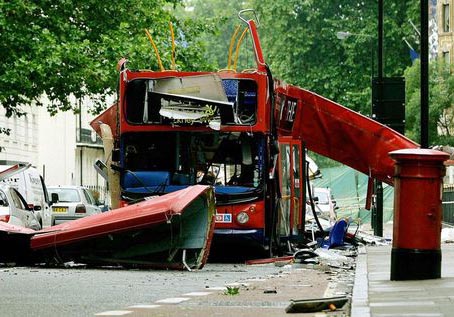
Mar 5, 2021 | Advocacy, Non-legal submissions
The ICJ issued a statement today on the occasion of an interactive dialogue with the UN Special Rapporteur on the promotion and protection of human rights while countering terrorism on the need for a human rights-based approach for countering terrorism.
The ICJ was not able to read the statement during the interactive dialogue due to the limited time provided for NGO statements.
The statement was as follows:
“Madam President,
The ICJ welcomes the attention given by the Special Rapporteur to the human rights impact of counterterrorism policies on the rights of women and girls and the need to incorporate a gender perspective into counter-terrorism policy and law in all areas (See, para. 39b, UN Doc. A/HRC/46/36).
We share the Special Rapporteur’s concern that the critical State obligation to promote economic, social and cultural rights should not be absorbed into a new, generalized, non-rights based category of “economic effects of terrorism (para. 37.) The emphasis must remain squarely on preventing and redressing violations and abuses against victims (para. 36).
We agree with the Special Rapporteur that human rights obligations and counterterrorism are directed at the State and that care must be taken to avoid the blurring of lines between counterterrorism and international humanitarian law (para. 39e). We concur that States must address the rule of law and human rights effects of misuse of sanctions and listing processes to target civil society and persons exercising rights protected by international law.
The ICJ therefore calls on the Council to maintain in this matter a human rights-based approach to victims of terrorism, as stressed by the Special Rapporteur.
Thank you.”
Contact:
Massimo Frigo, ICJ UN Representative, e: massimo.frigo(a)icj.org, t: +41797499949
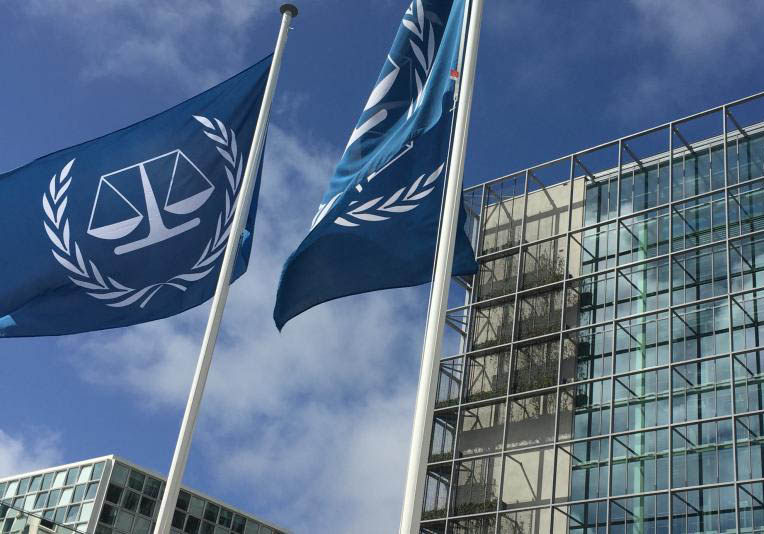
Mar 4, 2021 | News
Israeli and Palestinian authorities should immediately grant the International Criminal Court unhindered access to Palestinian territory to investigate alleged crimes under international law committed by all parties to the conflict, the International Commission of Jurists said today.
The International Criminal Court’s prosecutor yesterday announced the initiation of an investigation into “war crimes [that] have been or are being committed in the West Bank, including East Jerusalem, and the Gaza Strip.”
“Israel, the United States and other States must refrain from any efforts undermining the Office of the Prosecutor and the integrity of its investigation,” said Said Bearbia, ICJ’s MENA programme director. “Rather, they should comply with universally recognized norms on the independence and impartiality of judges and prosecutors.”
The ICJ calls on all states and concerned organizations to cooperate fully with and provide any necessary assistance to Office of the Prosecutor in carrying out its investigation.
The Israeli and Palestinian authorities, in particular, should grant the Office of the Prosecutor and its members unhindered access to all Palestinian territory without delay, and allow them to visit sites, meet and speak freely and privately with victims and witnesses, and access any relevant documentation or records.
It is critical that the ICC’s investigators and prosecutors, like any other investigators and prosecutors, should be able to perform their professional functions independently, impartially, diligently and without intimidation, hindrance, harassment or improper interference.
“The ICC investigation offers a unique opportunity to begin addressing the structural impunity that prevails over past and ongoing crimes under international law in Palestine,” Benarbia added. “It’s a crucial initial step in the realization of the victims’ rights to justice, truth and reparations.”
On 5 February 2020, the ICC decided it can assert its jurisdiction over serious crimes alleged to have occurred in the State of Palestine since 13 June 2014.
On 16 March 2020, the ICJ submitted amicus curiae observations in support of the Court’s territorial jurisdiction.
Find the Press Release in Arabic here: PalestineIsrael-PR-ICC-ARA2-2021
Contact:
Said Benarbia, Director, ICJ Middle East and North Africa Programme; t: +41 22 979 3817 e: said.benarbia(a)icj.org
Asser Khattab, Research and Communications Officer, ICJ Middle East and North Africa Programme, asser.khattab@icj.org









